PHILADELPHIA, 29 September –- Gamification Lecture 10: Gamification Social Good & Behavior Change with Kevin Werbach of the University of Pennsylvania’s Wharton Business School, Week 5!
How to apply gamification to make the world better, or to improve people’s well-being, primarily through behavior change techniques.
CLASS NOTES – PART 10 – SOCIAL GOOD & BEHAVIOR CHANGE
10.1 Gamification for good?
Can gamification make the world a better place?
Improve the quality of our lives?
Sure!
It can sell cereal…
or help us eat healthier
Gamification in the Social Impact or Social Good arena
– societal benefit
– individual benefit
Games > a lot of postive energy & emotion
Jane McGonigal – Reality is Broken
What’s Different
• Relatedness – but not always simple to unlock this power
— gamification about activating this latent desire
• Rewards for Doing Good?
— demotivational risks
• Behavior Change – getting people over the hump – as opposed to an organization trying to motivate external or internal (employees or customers) – so “Behavior Change” is a 3rd aspect / application of gamification that we haven’t really spoken so much about.
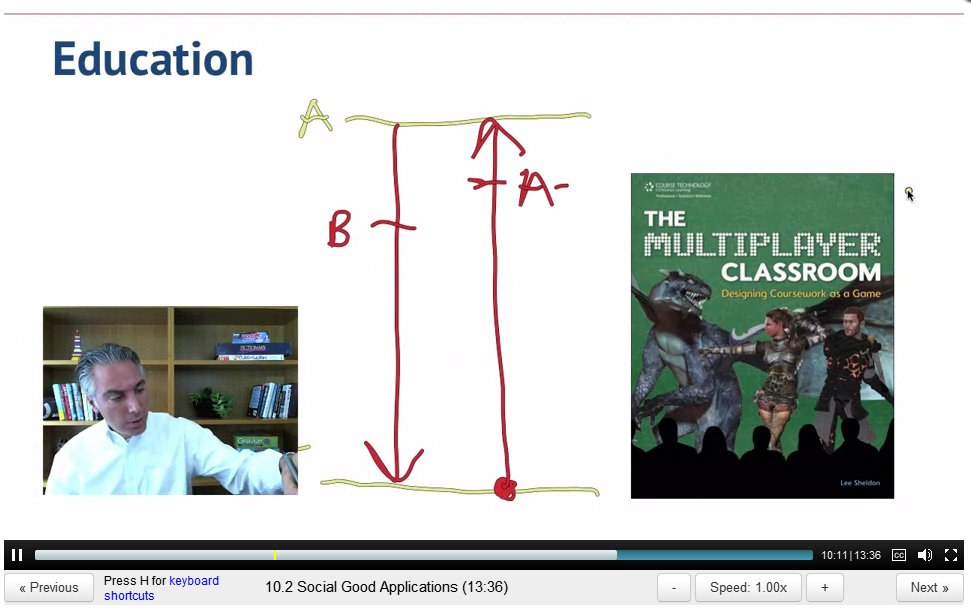
10.2 Social good applications
• Health & Wellness
• Energy & Environment
• Education
• Government
Health & Wellness
zamzee – the zamzee – accelerometer, similar to Nike+ & Fitbit, BUT targeted to low-income teenagers – tracks activity level > points, badges, level up — commercial device & mechanics for Health & Wellness benefit
superbetter (Jane McGonigal) – improve life, overcome illness
• superbetter.com
Energy & Environment
opower – social dynamic, friendly competition with your friends / neighbors – they’ve seen 2-4% improvement in communities they’re active = 100’s of millions of killowatt hours – huge+ in pollution, sustainability
RecycleBank – using techniques to improve recycling
Education
the challenge is to make education better not worse – demotivational risk
Quest to Learn – Chicago, Katie Salen
http://en.wikipedia.org/wiki/Katie_Salen
Lee Sheldon – the multiplayer classroom
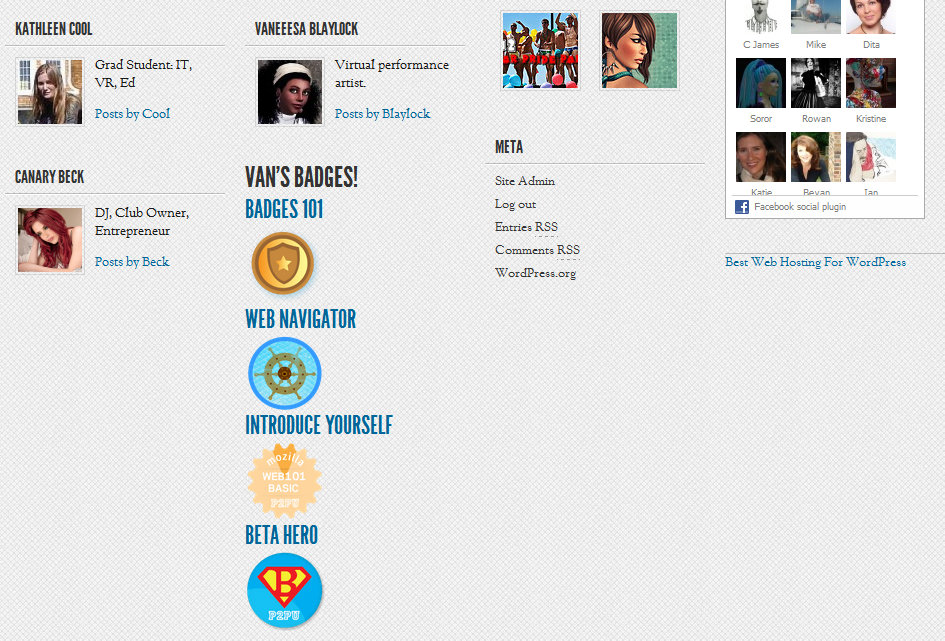
Credentialing Function – diplmas, standardized tests
Open Badge Framework – Mozilla Foundation
openbadges.org
Government
1. thousands of workers – enterprise gamification like any other
2. services – voting, DMV, public activities
3. promote policies / benefits
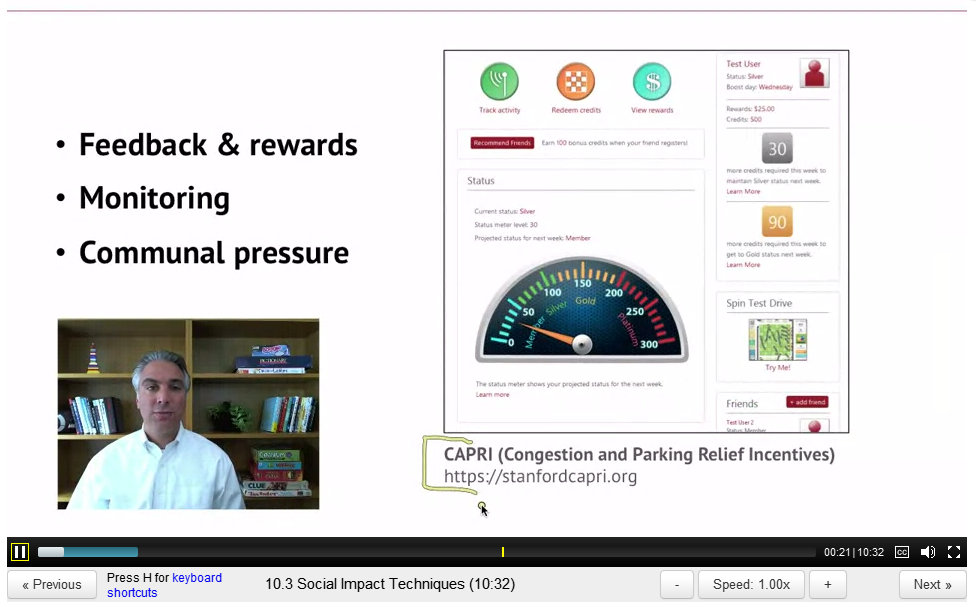
10.3 Social good techniques
Social Norms:
CAPRI – Congestion and Parking Relief Incentives (Stanford)
a challenge in social impact apps is reporting
not the same info transactional uses have
CAPRI uses GPS Phones automatically, no “check in” required (privacy)
Friend Data > Social Norms – don’t want to be too out of line – subtle pressure
Competition:
KUKUI CUP – UH – power efficiency > a competition
competition in commercial apps can have bad Zero Sum FX
but in social impact situations like this, less danger, added motivation
Impact:
PRACTICALLY GREEN
Graphically seeing what you’re doing can be a big motivator when you see the impact
Chance:
CAPRI – lottery “chutes & ladders” game
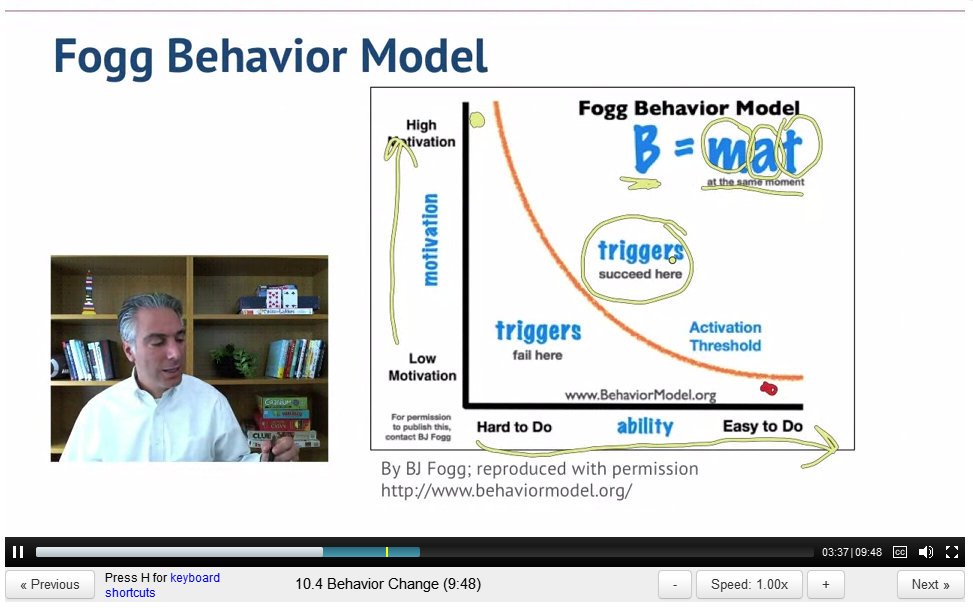
10.4 Behavior change
what’s the secret to sustainable behavior change?
Habit Formation
Fogg Behavior Model
B = MAT
Behavior = Motivation, Ability, Trigger
• Motivation & Ability Trade Off
• Trigger Timing
• Trigger Types
— Spark
— Facilitator
— Signal
Building the right triggers to work at the right moment. Too many triggers just adds noise.
Engagement Loop > Motivation (sometimes called “addiction loop”)
Motivation >> Action >> Feedback >> >>
Progression Loop > Perceived Ability
stair steps – navigates progression of ability
Good Games Trigger Effectively
well designed games put right thing in front of you at the right moment
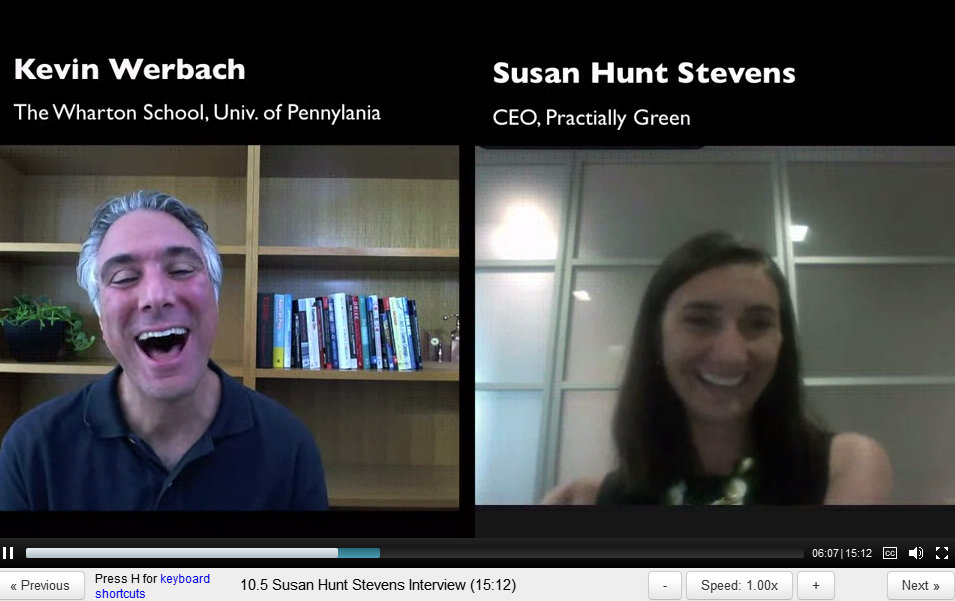
10.5 Susan Hunt Stevens interview
founder of Practically Green site
former GM of Boston.com
help people make better choices
bring transparency to community social norms
game elements – foundation for creating a scale: how green am I? How environmentally sustainable am I? Create a Leveling system. Create a point system – based on science, environmental impact. If you think about healthy & sustainable living – many benefits won’t be seen in your wallet. Use game elements to inspire real life behavior change. To understand where they are and to move up. And makes it FUN!
Nobody put FUN and SUSTAINABILITY in the same sentence before!
Most games aren’t like WoW, they have a shelf life of 12-18 months. You have to design very differently when you’re thinking of long term engagement. > The Community! 80% of people are participating for the social benefits of being part of the community. vs the PBL’s.
People participate more and are engaged more with colleagues.
Next layer down is friends & family.
Then other trust group.
Last is people they don’t know.
Participant > Contributor > Loyalist
We don’t have redeemable points – we’ve kept it out of Practically Green, in part, because the more tangible and valuable the reward is, the more tempting it is to cheat and game the system. Are we producing the intended result? Unlike other systems, peeps buying more stuff, is a loss for us.
Status, Recognition, Power, Social > less cheating
People you don’t know > more cheating
In our system there’s little motivation to cheat, and too much downside.
Online platforms can provide scalable feedback that would be almost impossible otherwise. But she also believes that offline is as important as online. When the 2 come together > sustainable behavior change.
Gamification: Social Good – Optional Materials
BJ Fogg, A Behavior Model for Persuasive Design, 2009
ROI Research, “Gaming for Good” report, register to download at http://www.roiresearch.com/register.asp


















1 thought on “Gamification 10 – Gamification Social Good”